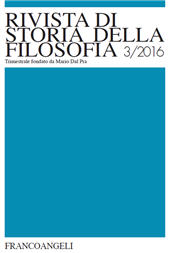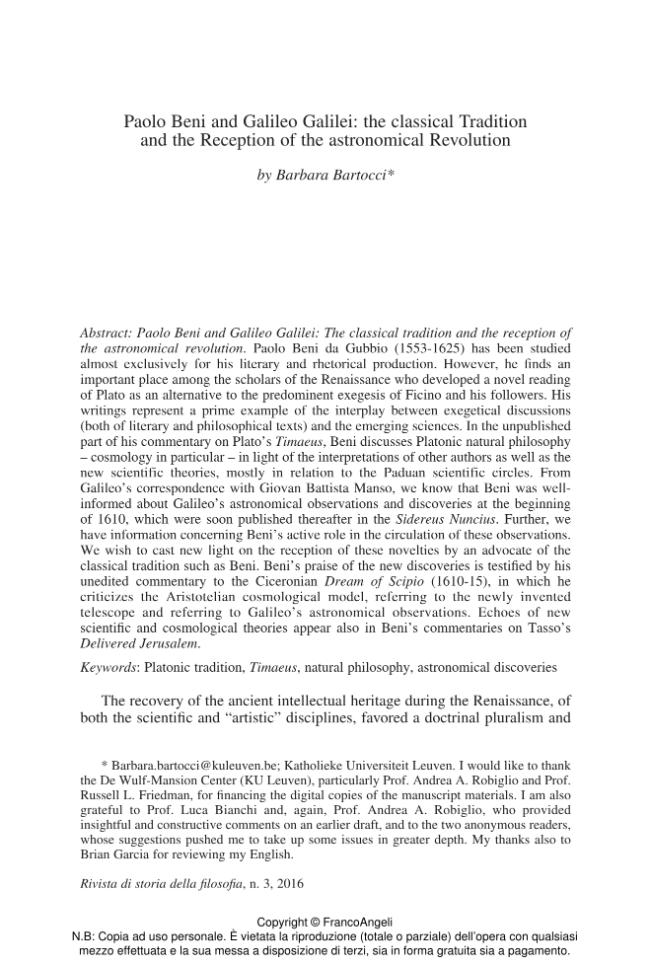Paolo Beni and Galileo Galilei : the classical Tradition and the Reception of the astronomical Revolution
423-452 p.
Paolo Beni da Gubbio (1553-1625) has been studied almost exclusively for his literary and rhetorical production. However, he finds an important place among the scholars of the Renaissance who developed a novel reading of Plato as an alternative to the predominent exegesis of Ficino and his followers. His writings represent a prime example of the interplay between exegetical discussions (both of literary and philosophical texts) and the emerging sciences. In the unpublished part of his commentary on Plato's Timaeus, Beni discusses Platonic natural philosophy - cosmology in particular - in light of the interpretations of other authors as well as the new scientific theories, mostly in relation to the Paduan scientific circles. From Galileo's correspondence with Giovan Battista Manso, we know that Beni was wellinformed about Galileo's astronomical observations and discoveries at the beginning of 1610, which were soon published thereafter in the Sidereus Nuncius. Further, we have information concerning Beni's acti
ve role in the circulation of these observations. We wish to cast new light on the reception of these novelties by an advocate of the classical tradition such as Beni. Beni's praise of the new discoveries is testified by his unedited commentary to the Ciceronian Dream of Scipio (1610-15), in which he criticizes the Aristotelian cosmological model, referring to the newly invented telescope and referring to Galileo's astronomical observations. Echoes of new scientific and cosmological theories appear also in Beni's commentaries on Tasso's Delivered Jerusalem.
-
Articoli dello stesso fascicolo (disponibili singolarmente)
-
Informazioni
Codice DOI: 10.3280/SF2016-003003
ISSN: 1972-5558
PAROLE CHIAVE
- Platonic tradition, Timaeus, natural philosophy, astronomical discoveries



